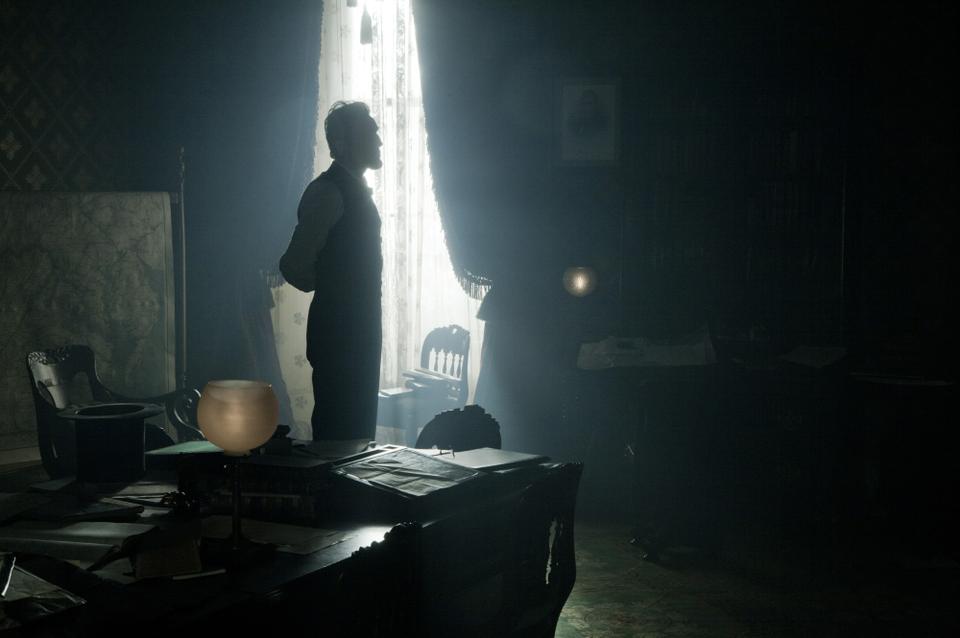
News
News Flash: Memory Shop and Anime Zakka to Open in Harvard Square

News
Harvard Researchers Develop AI-Driven Framework To Study Social Interactions, A Step Forward for Autism Research

News
Harvard Innovation Labs Announces 25 President’s Innovation Challenge Finalists

News
Graduate Student Council To Vote on Meeting Attendance Policy

News
Pop Hits and Politics: At Yardfest, Students Dance to Bedingfield and a Student Band Condemns Trump
‘Lincoln’ Shows Not All Movies Created Equal
Lincoln -- Dir. Steven Spielberg (20th Century Fox) -- 4.5 Stars

About 150 years ago, the United States of America seemed irreversibly divided, led by a president accused of not only abusing executive power but also of being a capitulating bag of hot air. So goes “Lincoln,” Steven Spielberg’s masterful character study and thoughtful nod to the current bipartisan stand-off present in today’s Congress. With a predictably superb performance by Daniel Day-Lewis and despite the emergence of a few predictable tropes of the biopic genre, “Lincoln” is an evocative, nuanced examination of the man—not the symbol—who steered the country through the Civil War and the passage of the 13th Amendment.
During the filming of “Lincoln,” Spielberg never addressed Day-Lewis as anything but “Mr. President,” and crew members were required to dress in 19th-century attire whenever on set. The result is a film that is truly immersing. From the opening scene showcasing the pure absurdity of close combat to the secretive meetings between members of Congress, there is a sense that “Lincoln” is not beholden to a fabricated agenda. It is an authentic cross-section of the public and private lives of the men who abolished slavery.
Of course, the dazzling all-star cast doesn’t hurt either. Day-Lewis—practically incapable of playing a character rather than becoming that character—shambles, rumbles, and gesticulates his way into the role of President Lincoln so effectively that his portrayal seems like it must be the only accurate one even though there’s no audio/video evidence to support any one depiction. Perhaps most importantly, Day-Lewis constructs Lincoln as a man with doubts, failings, and moral crises who was fighting a battle in his own home as well as in Congress. His most violent outbursts result from familial tension, as do his most heartbreaking moments, such as his soft mumble to his wife that “We must try to be happy.”
Even though Day-Lewis is allowed more complexity in the role of Lincoln, the supporting characters have their moments of depth as well. Sally Field effortlessly inhabits the fragile, unstable Mary Todd Lincoln and the clever, outspoken First Lady who greets members of Congress at a White House function and leaves them sheepish, chagrined little boys. Tommy Lee Jones, playing representative Thaddeus Stevens, is as endearingly disgruntled as usual, though a rare beam makes an appearance on his face towards the end of the film.
It is inevitable, however, that embedded throughout “Lincoln” are a few trite details that come with period pieces directed by Spielberg. As notes from a single delicate oboe begin to waft through the air, cuing a slow zoom into some character’s face, it is to be expected that a man with a powdered wig is on the verge of passionate oration. An overly simplified partisan dynamic is evident in the depiction of the historical House of Representatives, where the good, progressive Republicans are pitted against the bad, racist Democrats who inexplicably all look like Dave Grohl at various ages and with various beard lengths.
These pitfalls are easily overlooked in the grand scheme of a film that is expertly staged and paced. Though “Lincoln” leaps between locations and focal characters quite fanatically, the storyline and tone are never lost, and transitions remain smoothly executed. Spielberg artfully intersperses moments of droll humor into sequences that could otherwise be bogged down in political technicalities or lose themselves in melodramatic preaching.
As the film closes, slavery officially abolished and the Confederate States soon to rejoin their northern counterparts, it is hard not to draw parallels between Lincoln’s time and ours. “Lincoln” feels relevant in spite of its tattered Confederate flags and horse-drawn carriages; as ecstatic state representatives succeed in passing the 13th Amendment and cheering hordes pour out into the streets, a wearied leader is shown to be relieved but too exhausted to celebrate. The film is heavy on historical lessons, but it is also a hopeful reminder that couldn’t come at a better time: our country, when the moment comes, can achieve the historic if we are willing to work for it and willing to look just a bit farther than our own noses.
—Staff writer Natalie T. Chang can be reached at nataliechang@college.harvard.edu
Want to keep up with breaking news? Subscribe to our email newsletter.
From Our Advertisers

Over 300+ courses at prestigious colleges and universities in the US and UK are at your disposal.

Where you should have gotten your protein since 1998.

Serve as a proctor for Harvard Summer School (HSS) students, either in the Secondary School Program (SSP), General Program (GP), or Pre-College Program.

With an increasingly competitive Law School admissions process, it's important to understand what makes an applicant stand out.

Welcome to your one-stop gifting destination for men and women—it's like your neighborhood holiday shop, but way cooler.

HUSL seeks to create and empower a community of students who are seeking pathways into the Sports Business Industry.
